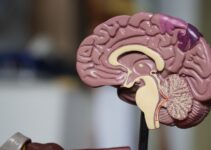The Importance of Understanding Propaganda
Propaganda is a pervasive force in our daily lives, shaping our beliefs, attitudes, and behaviors without us even realizing it. From advertisements to political campaigns, propaganda is used to manipulate and influence public opinion. In order to navigate the complex world of information and make informed decisions, it is crucial to understand the existence and effects of propaganda.
The Definition of Propaganda and Its Role in Society
Propaganda can be defined as the deliberate dissemination of information or ideas with the aim of influencing public opinion or behavior. Its purpose is to shape the way people think and act by appealing to their emotions, biases, and beliefs. Propaganda can take many forms, including advertising, political campaigns, news media, and social media.
The Historical Roots of Propaganda and Its Evolution
The use of propaganda can be traced back to ancient times, where rulers and leaders used various tactics to manipulate public opinion. However, it was during World War I and II that propaganda became a powerful tool for governments to shape public perception and gain support for their causes. With the advent of technology and the rise of digital media, propaganda has evolved and become even more pervasive in our society.
Noam Chomsky’s ‘Media Control’ and Its Key Findings
Noam Chomsky’s book ‘Media Control’ provides a critical analysis of the media’s role in shaping public opinion. Chomsky argues that the media serves as a propaganda system that promotes the interests of those in power. He identifies five filters through which information is manipulated: ownership, advertising, sourcing, flak, and anti-communism. These filters work together to shape the narrative presented to the public and limit dissenting voices.
The Mechanisms of Propaganda: How It Works and Why It Is So Effective

Propaganda works by appealing to our emotions and using psychological tactics to influence our thoughts and behaviors. It often relies on fear, patriotism, and other strong emotions to sway public opinion. Additionally, propaganda uses repetition and reinforcement to create a sense of familiarity and credibility. It also takes advantage of cognitive biases, such as confirmation bias and the availability heuristic, to shape our beliefs and perceptions.
The Impact of Propaganda on Public Opinion and Political Decision-Making
Propaganda plays a significant role in shaping public opinion and influencing political decision-making. It can sway elections by manipulating voters’ beliefs and attitudes towards candidates or issues. Propaganda also influences public policy by framing the narrative around certain issues and shaping the public’s perception of what is important or necessary.
The Role of Media in Propaganda: How News Outlets Shape Our Perception of Reality
The media plays a crucial role in disseminating propaganda to the public. News outlets have the power to shape our perception of reality by selectively reporting information, framing stories in a certain way, and promoting certain narratives. Media bias can also influence public opinion by presenting information in a way that aligns with their own agenda or biases.
The Psychological Effects of Propaganda: How It Affects Our Emotions and Beliefs
Propaganda has a profound impact on our emotions and beliefs. It can create strong emotional responses, such as fear or anger, which can override rational thinking and lead to impulsive decision-making. Propaganda also has the ability to shape our beliefs and attitudes by presenting information in a way that confirms our existing biases or beliefs.
The Ethics of Propaganda: Is Manipulation Ever Justifiable?
The use of propaganda raises ethical considerations, particularly when it comes to manipulation and deception. While some argue that propaganda is necessary for achieving certain goals or maintaining social order, others believe that it undermines democratic principles and individual autonomy. The debate over the use of propaganda in wartime and political campaigns continues to be a contentious issue.
How to Protect Yourself from Propaganda and Promote Critical Thinking
In order to protect ourselves from propaganda and make informed decisions, it is important to develop critical thinking skills and media literacy. This involves questioning the information presented to us, seeking out diverse perspectives, and fact-checking claims. It is also crucial to be aware of our own biases and emotions, and to be mindful of the tactics used in propaganda. By promoting critical thinking and media literacy, we can become more resistant to manipulation and make informed choices based on reliable information.



